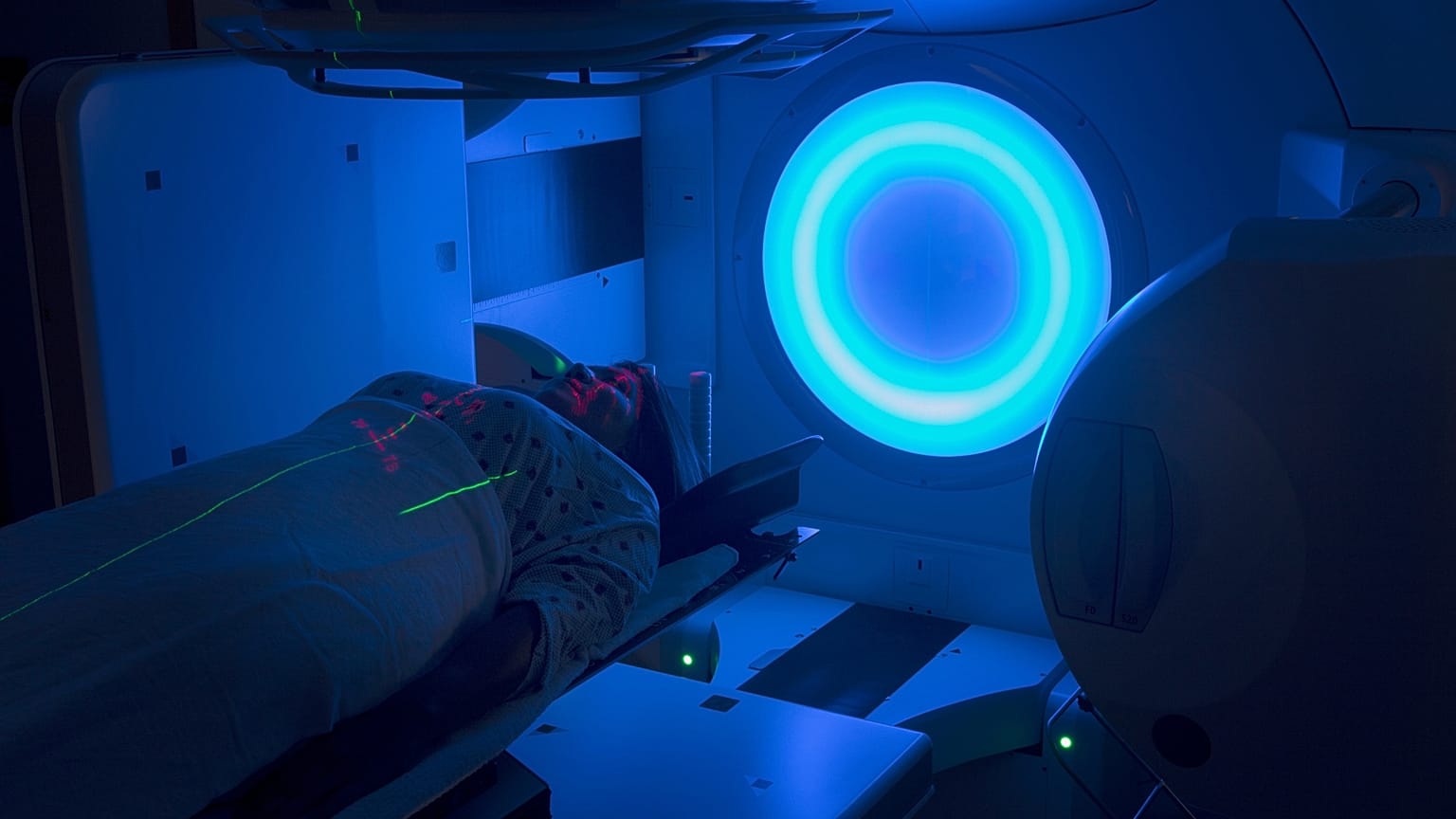Health
New Study Questions Radiation Therapy for Intermediate-Risk Breast Cancer

A recent international study has revealed that radiation therapy does not improve 10-year survival rates for women with early-stage breast cancer categorized as “intermediate risk.” This finding challenges the long-standing practice of using radiation as a standard treatment for breast cancer and suggests a potential shift in treatment recommendations.
The study, published on March 15, 2024, in the New England Journal of Medicine, involved over 1,600 patients who had undergone mastectomy, lymph-node surgery, and systemic therapy, including chemotherapy. Researchers tracked these women for a median of 9.6 years, focusing on those with stage II cancer characterized by one to three affected lymph nodes or aggressive tumours without lymph node involvement.
The results showed that the survival rates for patients who received radiation were nearly identical to those who did not. Specifically, survival rates were recorded at 81.4 percent for the radiation group compared to 81.9 percent for those who did not undergo the treatment. Only 29 participants experienced a recurrence of cancer, with nine cases (1.1 percent) in the radiation group and 20 cases (2.5 percent) in the non-radiation group.
John Simpson, head of a UK government group evaluating clinical trials, commented on the implications of the findings. “The findings potentially allow patients to avoid unnecessary treatments, leading to more effective and efficient use of health and care resources,” he stated.
Shifting Perspectives on Treatment
The authors of the study argue that these results challenge the belief that radiation should be an essential component of post-mastectomy treatment for all patients. Instead, they emphasize a growing consensus to reduce radiation use in lower-risk patients. The decline in breast cancer mortality rates since the trial began further underscores the impact of advancements in systemic cancer treatments, which have contributed to improved survival outcomes.
Projections for 2024 indicate that breast cancer mortality rates in Europe will decrease across all age groups, except for women over 80, where reductions will only be seen in the United Kingdom and Spain. As radiation therapy has already diminished in popularity among low-risk cancer patients, the latest findings clarify treatment guidelines for those with intermediate-risk classifications.
Addressing Side Effects and Patient Comfort
Radiation therapy is not without its drawbacks. It is associated with significant side effects, some of which can manifest months or even years after treatment. Common short-term effects include hair loss, soreness, swelling, and skin irritations resembling sunburn. In rare cases, patients may also experience lung inflammation or nerve damage in the shoulders and arms, resulting in numbness, tingling, pain, and weakness.
Dr. Nicola Russell, a radiation oncologist at the Netherlands Cancer Institute and co-author of the study, highlighted the importance of minimizing these side effects. “Avoiding unnecessary irradiation will reduce both treatment burden and, for example, the detrimental effects on breast reconstruction for these mastectomy patients,” she explained.
As healthcare systems continue to evolve with new research, this study may play a crucial role in redefining treatment protocols for breast cancer patients. By prioritizing effective treatments while minimizing unnecessary interventions, the medical community can enhance patient quality of life and streamline resource allocation.
-

 Top Stories3 months ago
Top Stories3 months agoTributes Surge for 9-Year-Old Leon Briody After Cancer Battle
-

 Entertainment4 months ago
Entertainment4 months agoAimee Osbourne Joins Family for Emotional Tribute to Ozzy
-

 Politics4 months ago
Politics4 months agoDanny Healy-Rae Considers Complaint After Altercation with Garda
-

 Top Stories4 months ago
Top Stories4 months agoIreland Enjoys Summer Heat as Hurricane Erin Approaches Atlantic
-

 World5 months ago
World5 months agoHawaii Commemorates 80 Years Since Hiroshima Bombing with Ceremony
-

 Top Stories3 months ago
Top Stories3 months agoNewcastle West Woman Patricia Foley Found Safe After Urgent Search
-

 Top Stories5 months ago
Top Stories5 months agoFianna Fáil TDs Urgently Consider Maire Geoghegan-Quinn for Presidency
-

 World5 months ago
World5 months agoCouple Convicted of Murdering Two-Year-Old Grandson in Wales
-

 World5 months ago
World5 months agoGaza Aid Distribution Tragedy: 20 Killed Amid Ongoing Violence
-

 World5 months ago
World5 months agoAristocrat Constance Marten and Partner Convicted of Infant Murder
-

 Top Stories4 months ago
Top Stories4 months agoClimbing Errigal: A Must-Do Summer Adventure in Donegal
-

 Top Stories4 months ago
Top Stories4 months agoHike Donegal’s Errigal Mountain NOW for Unforgettable Summer Views









